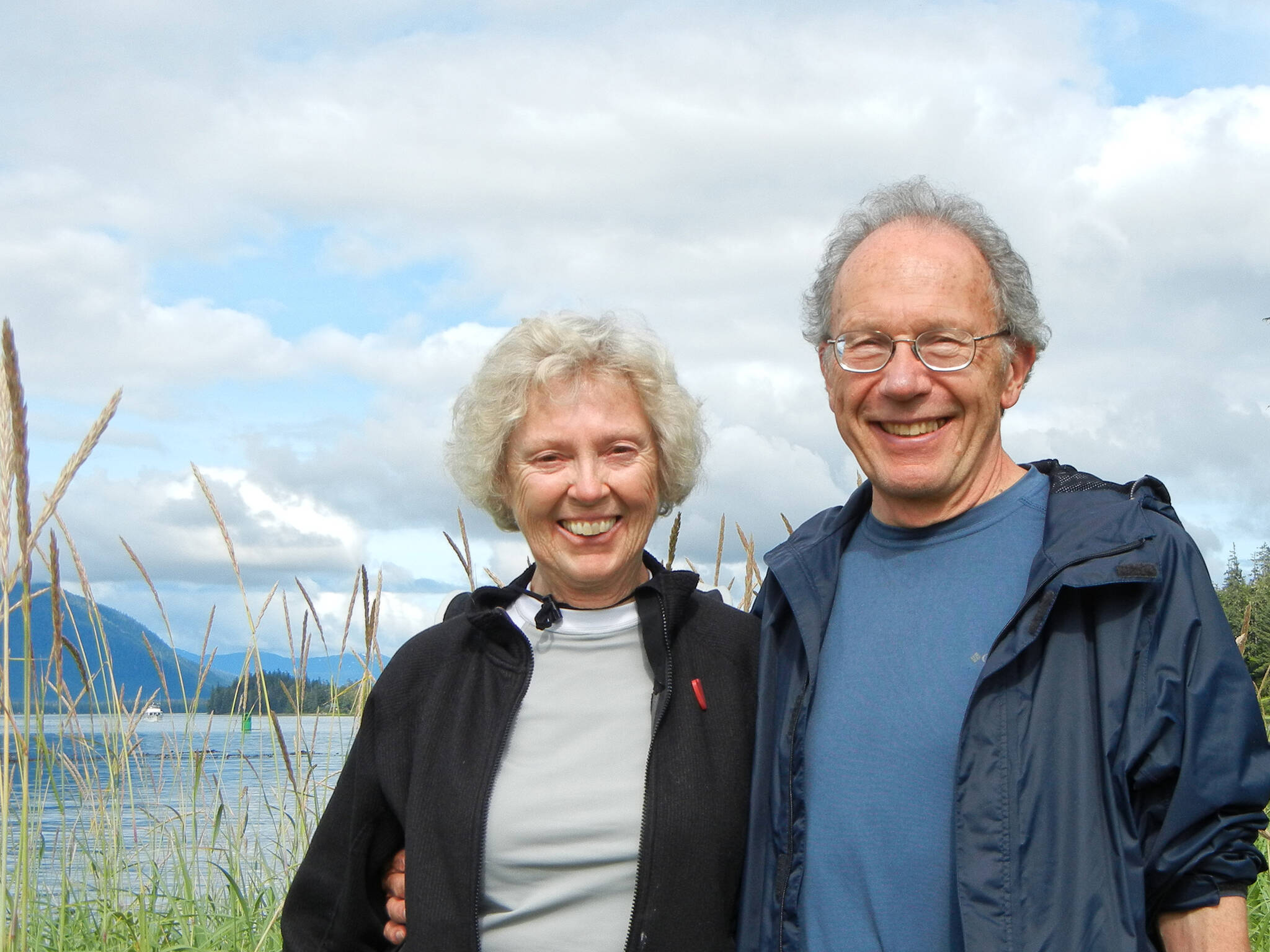When a car struck Johnny Palka’s wife of nearly 60 years and caused a fatal head injury, he could have turned to anger and sought criminal prosecution of the young driver.
Instead, Palka decided to pursue a healing process of restorative justice that would reconcile him with the driver who caused the deadly accident.
Palka, a former South Whidbey resident, will be speaking about this choice he made at an event focusing on restorative justice at 6:30 p.m. this Thursday, July 28 at the Unitarian Universalist Meetinghouse at 20103 State Route 525 in Freeland. Face masks are required. People can also attend virtually via a Zoom link that can be obtained by emailing tewell@whidbey.com.
Palka and his daughters will lead the in-person event, which will include teleconferenced appearances from the driver and the mediation facilitator.
Palka and his wife, Yvonne, lived on Whidbey Island for 17 years and were well-known residents who had associations with the Whidbey Institute and the Maxwelton Salmon Adventure, the precursor to the Whidbey Watershed Stewards. Yvonne was an artist who specialized in Japanese sumi-e painting.
In 2017, the couple moved to a town near Minneapolis, Minnesota in order to be closer to their two daughters and their families.
While crossing the street in the fall of 2019, they were knocked to the ground by the 20-year-old driver of a car.
“The driver did exactly what she was supposed to. She stopped,” Palka recalled. “It was evening time – she could have driven on. No one would ever know who caused the accident.”
The driver, who was on her way to grab dinner when the accident occurred, jumped out of her car and was the first person to be with Yvonne on the pavement.
Yvonne suffered a serious brain injury and passed away three weeks later.
After her death, the accident had the potential to be classified as a fatal event with grounds for conviction, but Palka didn’t like to think that someone who had behaved “impeccably” in response to the accident would be punished by having a criminal record.
“Nothing would have been achieved by this. Yvonne was not going to come back to life,” he said. “Nothing would be changed, except another life would be ruined. And that made no sense to us whatsoever.”
Palka’s daughter suggested the practice of restorative justice, the goals of which he was somewhat familiar. He found a restorative justice facilitator in the area who helped him, his family and the driver begin their healing together.
As part of that process, the young woman at fault met with Palka face-to-face and wrote letters expressing her feelings and regret about the accident.
“She wrote those letters very quickly and they are very moving,” Palka said.
He has plans to pass the letters down to generations of his family, and also to include them in a memoir he’s writing about his life with Yvonne.
At its root, restorative justice is about healing.
“That is the basic philosophy. It derives from Native American tradition and Maori tradition in New Zealand,” Palka said. “Both of those native cultures have a way of dealing with misdeeds that is community-based and is aimed towards healing and reconciliation.”
As part of the agreement, a video including both parties titled “In a Split Second” was made about the accident, which is intended to be shown in driver’s ed classes to illustrate what can easily happen when drivers let their attention drift, even for a minute.
That video will also be shared with Whidbey residents at next week’s event.
Tom Ewell, an organizer for the upcoming event, said Palka’s story is a heartwarming tale about redemption.
“We need some lift in these days, to see that there are alternatives to the violence and the animosities,” he said. “This is a good example of it.”



